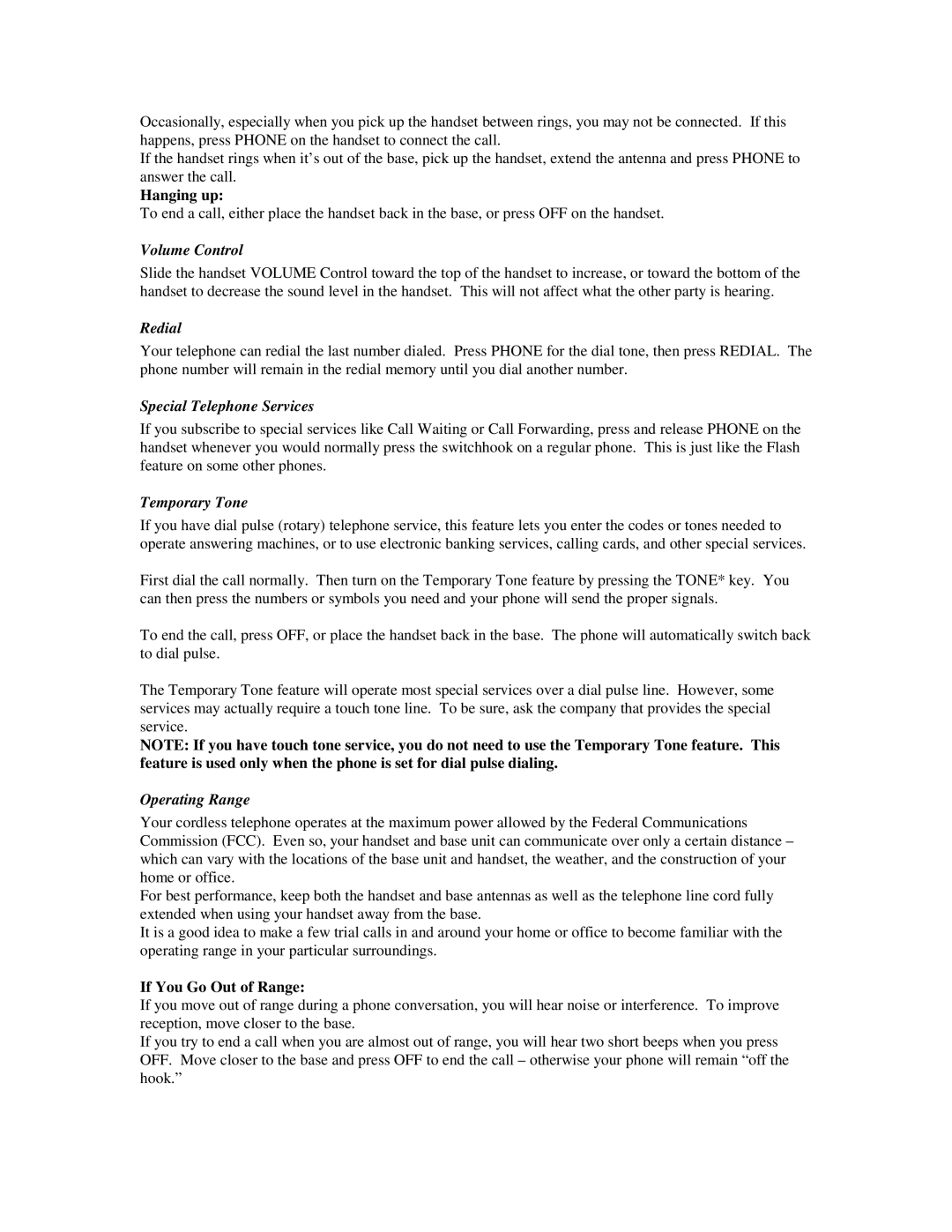Occasionally, especially when you pick up the handset between rings, you may not be connected. If this happens, press PHONE on the handset to connect the call.
If the handset rings when it’s out of the base, pick up the handset, extend the antenna and press PHONE to answer the call.
Hanging up:
To end a call, either place the handset back in the base, or press OFF on the handset.
Volume Control
Slide the handset VOLUME Control toward the top of the handset to increase, or toward the bottom of the handset to decrease the sound level in the handset. This will not affect what the other party is hearing.
Redial
Your telephone can redial the last number dialed. Press PHONE for the dial tone, then press REDIAL. The phone number will remain in the redial memory until you dial another number.
Special Telephone Services
If you subscribe to special services like Call Waiting or Call Forwarding, press and release PHONE on the handset whenever you would normally press the switchhook on a regular phone. This is just like the Flash feature on some other phones.
Temporary Tone
If you have dial pulse (rotary) telephone service, this feature lets you enter the codes or tones needed to operate answering machines, or to use electronic banking services, calling cards, and other special services.
First dial the call normally. Then turn on the Temporary Tone feature by pressing the TONE* key. You can then press the numbers or symbols you need and your phone will send the proper signals.
To end the call, press OFF, or place the handset back in the base. The phone will automatically switch back to dial pulse.
The Temporary Tone feature will operate most special services over a dial pulse line. However, some services may actually require a touch tone line. To be sure, ask the company that provides the special service.
NOTE: If you have touch tone service, you do not need to use the Temporary Tone feature. This feature is used only when the phone is set for dial pulse dialing.
Operating Range
Your cordless telephone operates at the maximum power allowed by the Federal Communications Commission (FCC). Even so, your handset and base unit can communicate over only a certain distance – which can vary with the locations of the base unit and handset, the weather, and the construction of your home or office.
For best performance, keep both the handset and base antennas as well as the telephone line cord fully extended when using your handset away from the base.
It is a good idea to make a few trial calls in and around your home or office to become familiar with the operating range in your particular surroundings.
If You Go Out of Range:
If you move out of range during a phone conversation, you will hear noise or interference. To improve reception, move closer to the base.
If you try to end a call when you are almost out of range, you will hear two short beeps when you press OFF. Move closer to the base and press OFF to end the call – otherwise your phone will remain “off the hook.”
